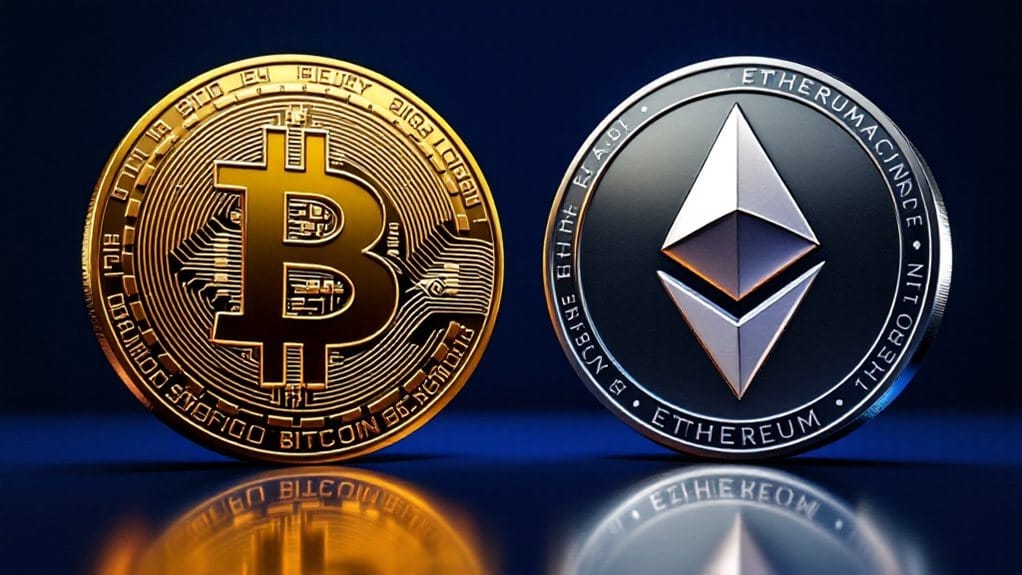Radium Coin functions as a digital currency on the Solana blockchain, offering efficient trading and staking operations with standard privacy features. Operating distinctly from Raydium, an automated market maker, this cryptocurrency facilitates transactions through Solana’s established security infrastructure while enabling yield generation through liquidity provision and staking mechanisms. The platform integrates with multiple DeFi protocols, providing accessibility through major exchanges like Binance and FTX, with further technical capabilities awaiting exploration within its ecosystem.

In the constantly changing landscape of cryptocurrency, Radium Coin has emerged as a notable digital asset operating on the Solana blockchain, though it’s frequently confused with the automated market maker Raydium. Operating within the robust Solana ecosystem, Radium facilitates efficient trading and staking operations while leveraging the blockchain’s inherent security features to guarantee safe transaction processing. Users benefit from lower transaction costs compared to platforms built on other networks like Ethereum. The platform’s innovative constant product formula ensures stable pricing and continuous liquidity for all trading pairs.
The token’s primary functionality centers on trading and staking mechanisms, enabling users to generate rewards through liquidity provision and yield farming opportunities. Through its integration with multiple decentralized finance protocols, Radium allows participants to engage in token swapping and contribute to liquidity pools, creating potential streams of passive income for stakeholders. Unlike traditional banking systems, Radium eliminates the need for intermediaries in financial transactions.
Despite sharing similar nomenclature with Raydium, an automated market maker built on Solana, Radium maintains distinct characteristics and use cases. While Raydium functions as a thorough platform utilizing Serum’s order book for expedited trades, Radium operates specifically as a digital currency focused on transactions and yield generation within the broader DeFi ecosystem.
Radium’s distinct identity in the Solana ecosystem sets it apart from Raydium, focusing on core currency operations and yield opportunities.
The token’s availability on major cryptocurrency exchanges like Binance and FTX has improved its accessibility, contributing to its role in the Solana DeFi landscape. Through these platforms, users can actively participate in governance decisions that shape the protocol’s development while accessing multiple yield-generating opportunities through staking and liquidity provision.
Regarding privacy features, Radium operates within the standard parameters of blockchain technology, utilizing basic encryption without implementing advanced anonymity features. The token benefits from Solana’s established security infrastructure but, like most cryptocurrencies, does not offer thorough privacy-focused solutions.
This positioning aligns with traditional cryptocurrency frameworks, where transaction transparency remains a fundamental characteristic of blockchain technology, though future developments may introduce improved privacy features to meet evolving market demands and user preferences.
FAQs
How Does Radium Coin’s Privacy Compare to Monero and Zcash?
Without sufficient technical documentation about Radium Coin‘s specific privacy implementations, a direct comparison to Monero and Zcash‘s established privacy features cannot be made.
Monero utilizes Ring Signatures, Stealth Addresses, and RingCT for thorough transaction privacy, while Zcash employs zk-SNARKs for optional privacy.
These established protocols have undergone extensive cryptographic testing and peer review to validate their privacy guarantees.
What Exchanges Currently Support Trading of Radium Coin?
Based on the available information, there is no verifiable data about exchanges that support trading of Radium Coin.
It’s essential to distinguish this from Raydium (RAY), which is a different token traded on established exchanges like KuCoin, Binance, and Kraken.
Further research would be needed to confirm the existence and trading venues of any cryptocurrency specifically named “Radium Coin.”
Is There a Maximum Supply Limit for Radium Coin?
Based on the available background information, there are no verifiable details about Radium Coin’s maximum supply limit.
While similar cryptocurrencies like Raydium have documented supply metrics (maximum supply of 555 million tokens), specific supply data for Radium Coin remains unconfirmed.
Supply limits are essential metrics for cryptocurrency valuation and market analysis, but without reliable sources, no definitive statement can be made about Radium Coin’s supply structure.
Can I Mine Radium Coin With Consumer-Grade Hardware?
Based on available data, mining Radium Coin is not possible since it does not exist as a recognized cryptocurrency.
Individuals interested in mining privacy-focused cryptocurrencies with consumer hardware should consider alternatives like Monero (XMR), which uses the RandomX algorithm compatible with standard CPUs, or ZCash (ZEC).
Though profitability would depend on hardware specifications and current electricity costs.
What Wallets Are Compatible With Storing Radium Coin Securely?
Several secure wallet options are available for storing Radium coins.
Hardware wallets like Ledger and Trezor provide maximum security through offline storage, while the official Radiant wallet offers dedicated features with seed phrase protection.
External software wallets enable convenient access across devices, and HD wallets allow users to generate multiple addresses with improved security through passphrases and encryption protocols.









